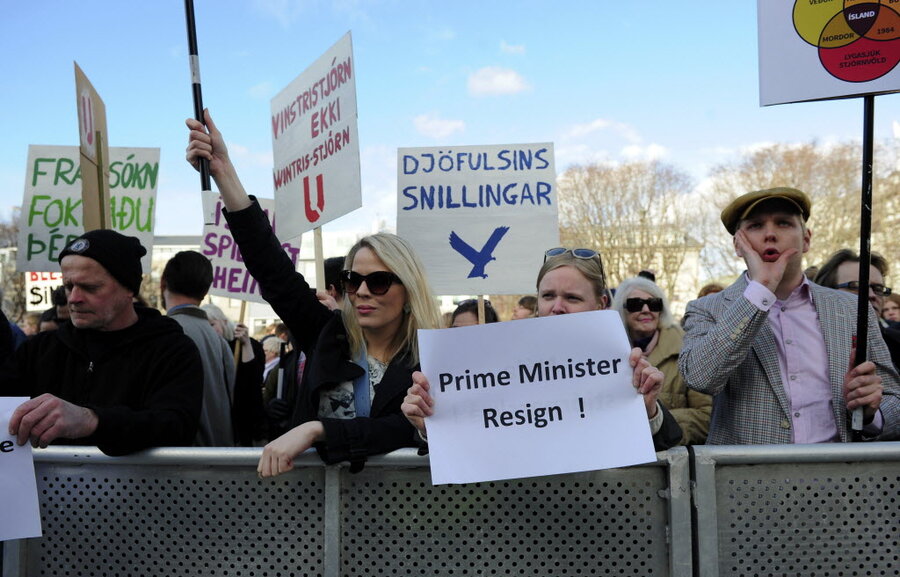A global spotlight in Panama Papers
Loading...
A group of students in Indonesia recently asked American diplomat James Carouso what they could do to end bribery and other corruption. “Don’t pay,” he said, challenging them to stand by their conscience. But then he added this appeal to use new and powerful tools for transparency: “Take a picture of someone who asks for a bribe and put it on the Internet.”
The idea of using the web to expose a shady financial deal is hardly new, but the world saw a deluge of it this week with the release of the so-called Panama Papers. Someone at the Panama law firm Mossack Fonseca leaked 11.5 million records to the media that show how leading figures around the world, from prime ministers to celebrities, have been able to shuffle their wealth through offshore tax havens.
Not all the transactions were illegal. But the extreme efforts made to maintain secrecy, through shell companies and other means, have raised sharp eyebrows in dozens of countries. And the disclosures have created what may be the first popular global demand for more transparency in the world financial system.
The leaked files first went to a German newspaper that then turned them over to the International Consortium of Investigative Journalists. That group of more than 60 media outlets is steadily revealing malfeasance, such as the laundering of illicit wealth and illegal tax evasion. A few world leaders, such as those in Russia, Ukraine, and Iceland, are now under tough scrutiny.
The mass exposure of highly secretive arrangements across borders provides new impetus to an anti-corruption summit to be held in Britain next month. The summit is just part of a steady drumbeat against graft, fraud, and other forms of dishonesty in government and business. Last year, says José Ugaz, chairman of the Berlin-based group Transparency International, “People across the globe sent a strong signal to those in power: It is time to tackle grand corruption.”
Public protests against corruption now drive politics in many countries, such as Brazil. The Internet helps link people seeking honest and open governance on a scale never before seen in history. Exposing wrongdoing, however, is just the start. Global events like the Panama Papers must also lead to public action to ensure ethical behavior as a cultural norm. Simply refusing to pay a bribe is one step. The bigger one is building transparency into financial and government transactions, shedding light on dark deals.





